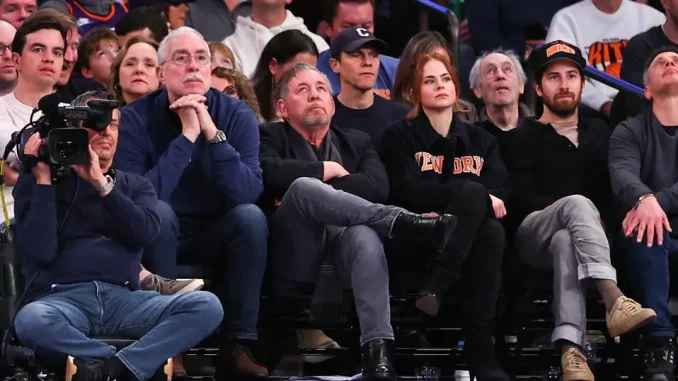
By agreement, teams give the Commissioners in their sports deep and broad authority to regulate their leagues. A principal part of that authority is the power to adjudicate a variety of disputes involving league matters.
A long line of cases has upheld that authority. Yet, the New York Knicks, as part of a lawsuit against the Toronto Raptors, attacked NBA Commissioner Adam Silver’s authority to do just that. On Friday, a federal court rejected that effort, describing it as an “airball.”
The Knicks-Raptors Suit
On August 21, 2023, the Knicks sued the Raptors, their head coach Darko Rajakovic, player development coach Noah Lewis, and Ikechukwu Azotam, the Knicks’ former Director of Video/Analytics/Player Development Assistant and current Raptors employee. The Knicks alleged that in the summer of 2023, after accepting a position with the Raptors but before leaving the Knicks, Azotam secretly forwarded confidential and proprietary Knicks materials to himself and the Raptors. These materials allegedly included scouting reports, analyses of players and teams, film information and data, and other sensitive, competitive information. The Knicks allege violations of federal and state trade secret law, breach of contract, tortious interference, unfair competition, and related claims.
The lawsuit was nearly, if not entirely, unprecedented. While teams have occasionally sued their leagues (such as the Dallas Cowboys, Oakland Raiders, and the New York Rangers), it is shocking for one team to sue another in a public forum. Instead, disputes between teams are ordinarily resolved by the Commissioner.
Commissioner Authority
The genesis of the modern-day Commissioner and the role’s authority was MLB’s appointment of Judge Kennesaw Mountain Landis as the sport’s first Commissioner in 1921 after the “Black Sox” scandal in which several members of the Chicago White Sox were accused of intentionally losing the 1919 World Series in exchange for bribes from mobsters. Landis banned eight players for life.
For many years thereafter, the broad scope of a league’s Commissioner authority was most frequently challenged – and upheld – in the context of MLB. In 1931, the Northern District of Illinois dismissed a suit from the then-minor league Milwaukee Brewers challenging Landis’ rejection of an optional player contract between the St. Louis Browns and the Brewers, holding that “the commissioner acted clearly within his authority.” In 1977, the Northern District of Georgia held that Commissioner Bowie Kuhn had the authority to discipline the Atlanta Braves for violations of a recently-imposed no-tampering policy under the Commissioner’s broad authority to act “in the best interests of baseball.” The next year, the Seventh Circuit Court of Appeals affirmed a decision upholding Kuhn’s authority on the same ground to disallow the Oakland Athletics’ sale of left fielder Joe Rudi and pitcher Rollie Fingers to the Boston Red Sox for $2 million and pitcher Vida Blue to the New York Yankees for $1.5 million. Finally, in 1989, the Southern District of Ohio recognized the broad authority of the Commissioner as the real party-in-interest in denying Pete Rose’s motion to remand his lawsuit back to Ohio state court.
The more recent challenges to Commissioner authority have come in the NFL. In 2016, the Second Circuit Court of Appeals reversed a district court decision and affirmed Goodell’s authority to impose a four-game suspension on Patriots’ quarterback Tom Brady for his alleged involvement in a scheme to deflate footballs to his liking. The Second Circuit recognized the Commissioner’s “broad authority to deal with conduct he believes might undermine the integrity of the game.” A few months later, the Eighth Circuit Court of Appeals ruled similarly in upholding Goodell’s authority to punish running back Adrian Peterson for alleged domestic violence. The next year, the Southern District of New York rejected the NFLPA’s efforts to vacate an arbitration decision in which Goodell imposed a six-game suspension on running back Ezekiel Elliott for domestic abuse. Last spring, the Southern District of New York held that most of the claims asserted by three Black coaches, notably Brian Flores, against the NFL and various clubs had to be arbitrated in front of Goodell. And finally, in May, the Nevada Supreme Court ordered former head coach Jon Gruden’s lawsuit against the NFL to be arbitrated by Goodell or his designee.
Copyright © 2025
Leave a Reply